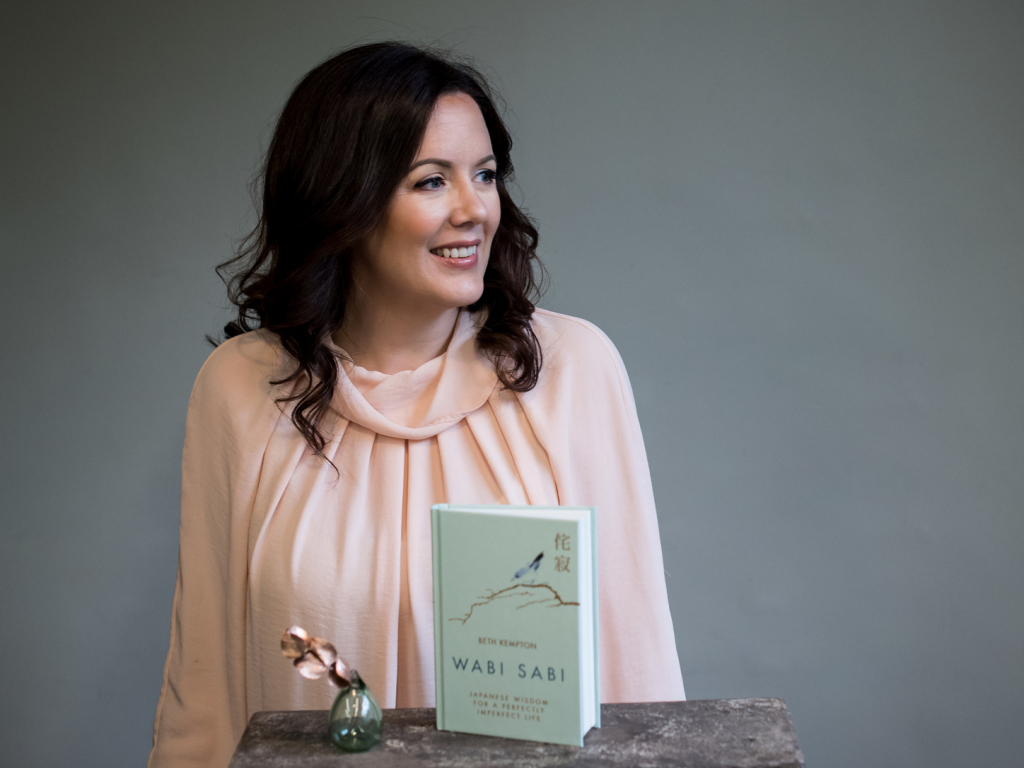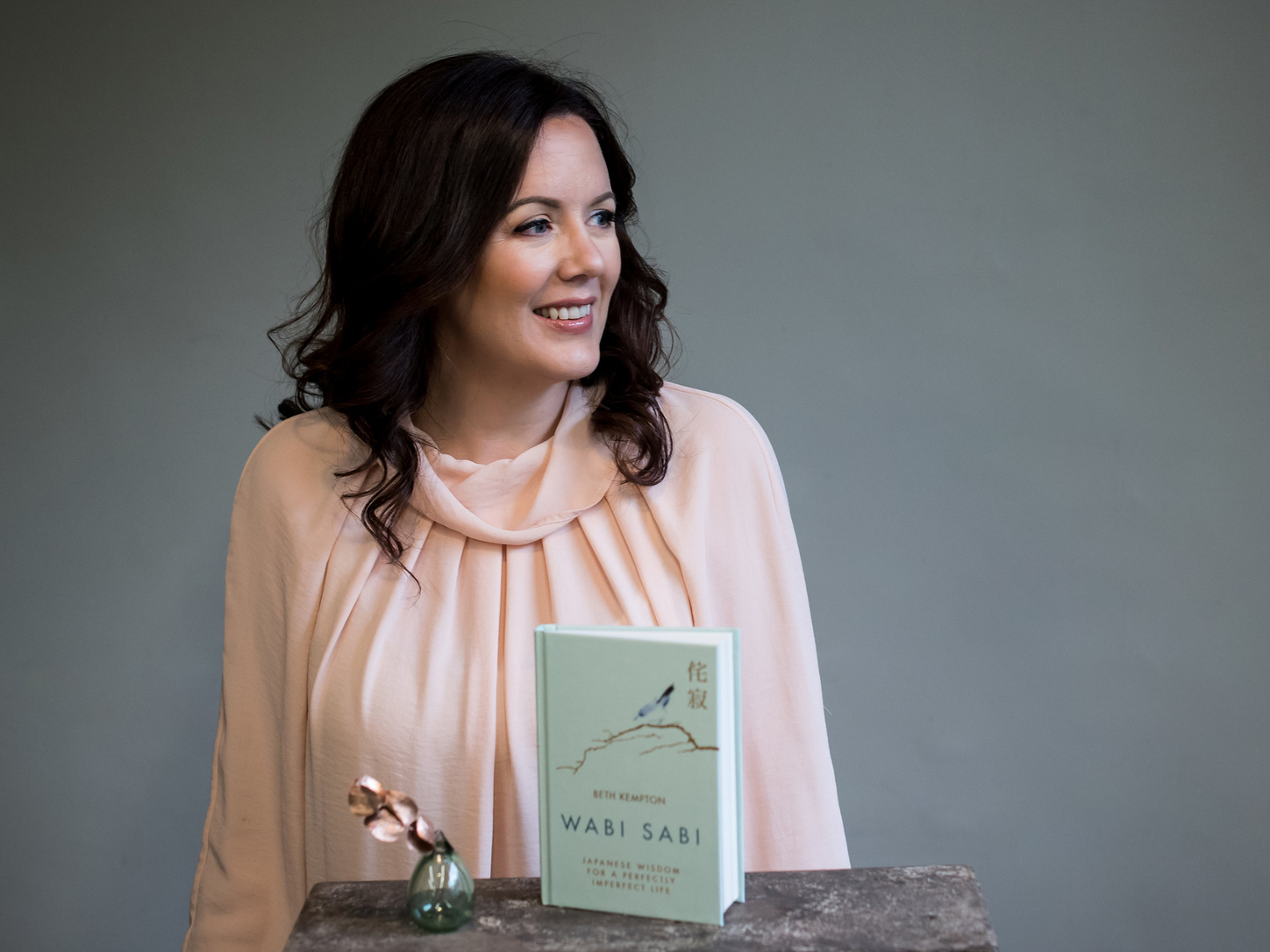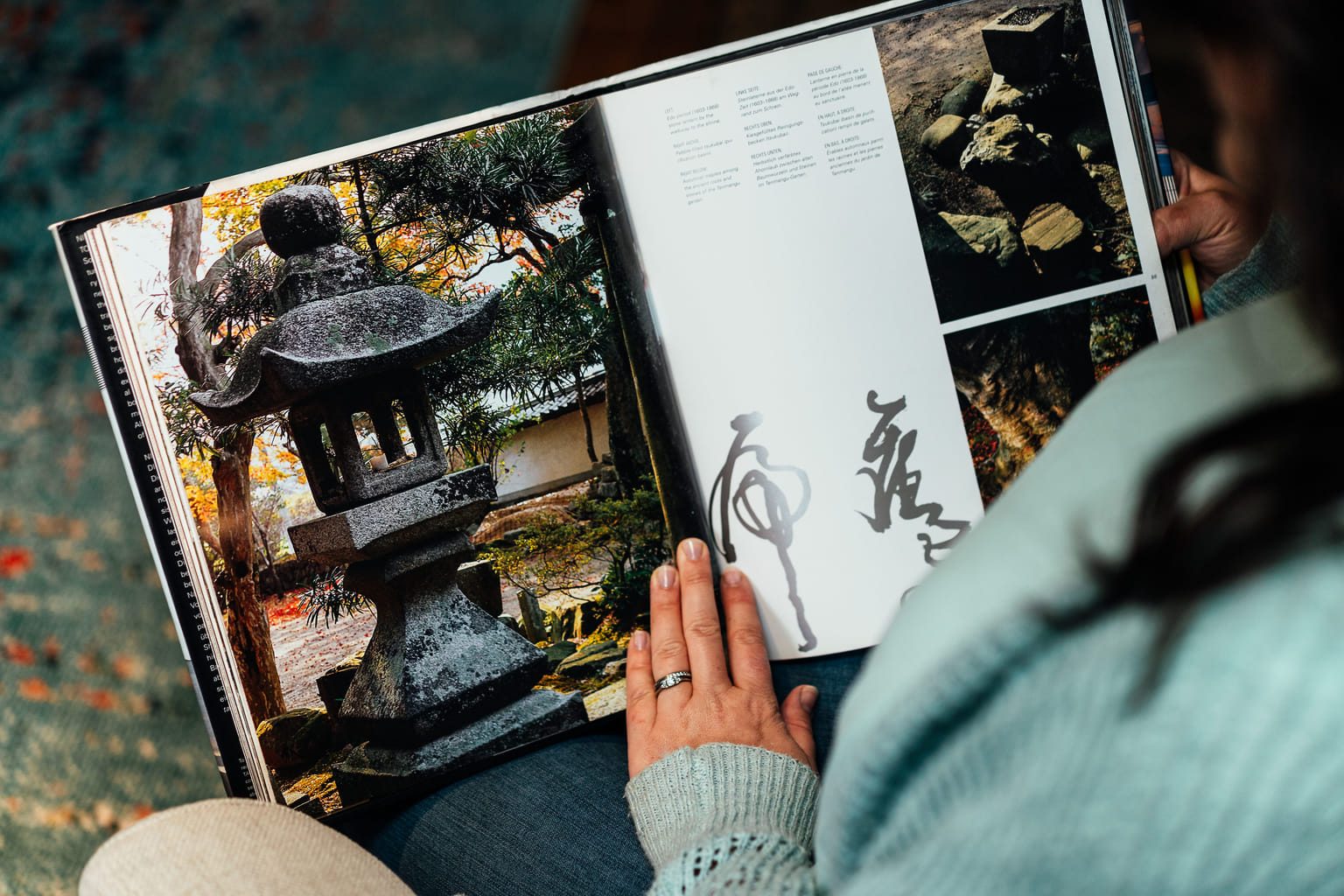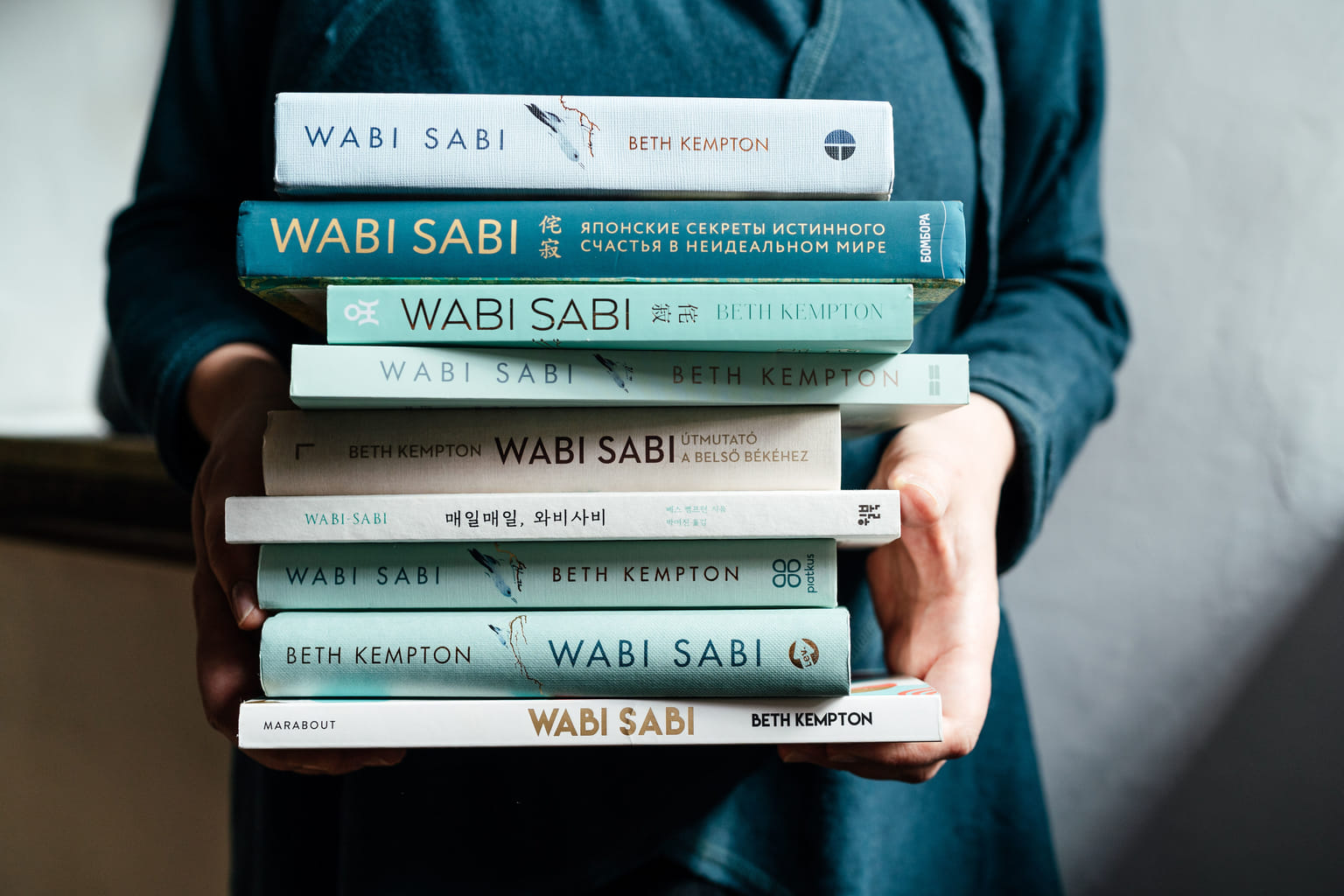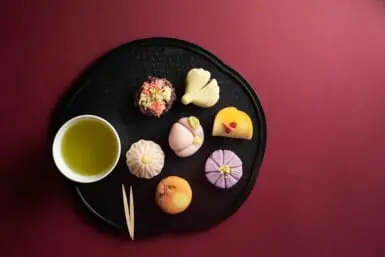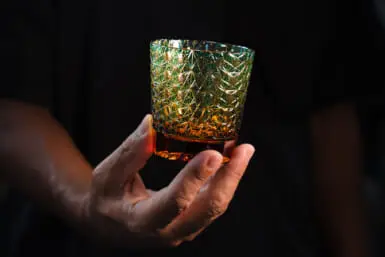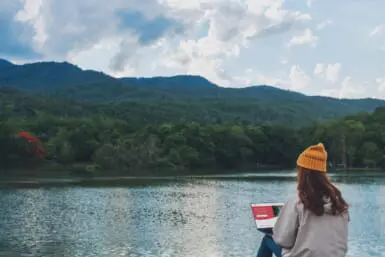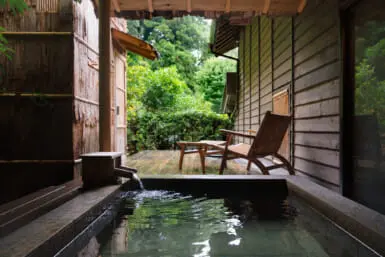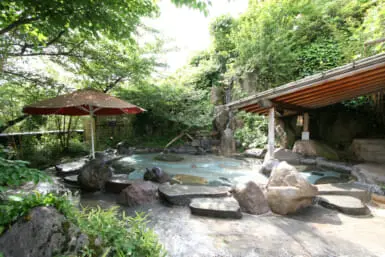Life coach, writer, interpreter, entrepreneur, Japanologist, adventurer, mother and self-described “freedom seeker,” Beth Kempton certainly has many strings to her bow. Her motivational teachings and inspirational stories encourage people around the world to improve their lives and strive for happiness in practical and positive ways. Kempton’s latest book focuses on Japanese culture, ancient beliefs and how we can apply these universally to our modern day lives. We caught up with the author of Wabi Sabi: Japanese Wisdom for a Perfectly Imperfect Life at her 500-year-old English cottage to find out more about the book, the fundamentals of wabi sabi and her own connection to Japan.
How did you end up writing Wabi Sabi?
For nearly 10 years I have been helping people to find meaning and joy in their lives through my company, Do What You Love. My first book, Freedom Seeker: Live more. Worry less. Do what you love, brought together many of the lessons I have learned over the years, together with my unconventional decision-making process, which has led me to some wonderful adventures and fantastic opportunities. Writing that made me realize I love writing books, and I wanted to write another. For a long time I’d been looking for ways to bring my love of Japan and experience there into my work as a life coach. I knew that my own life had been influenced significantly by my 20-year love affair with the country, so I decided to explore what life lessons were buried in Japanese culture, aesthetics and language. The result was Wabi Sabi.
Compared to Freedom Seeker, how was the process different when writing your second book?
Freedom Seeker was more about looking inwards for life lessons, whereas Wabi Sabi was about looking outwards – towards Japan – for valuable ideas. I wrote Freedom Seeker at a time when I was feeling very pressured in my life. I had a toddler and was pregnant with our second child, our business was growing really fast and I had forgotten how important it is to take time for myself and pursue things that I am really passionate about. I needed to find a way back to the free-spirited person I used to be. Writing Freedom Seeker really did seem to set me free again. Wabi Sabi was very different in that it felt more like a wonderful adventure and a privilege to be able to travel back to Japan multiple times to research it. It was a great way to bring together many different threads of my life.
You had an interesting career history in Japan; what were some of the highlights?
I chose Japanese for my undergraduate degree because I wanted to go on an adventure, live somewhere very different from England, and learn a language. I spent my second year of uni living with a homestay family in Kyoto, who only spoke Kyoto dialect, so I had to learn fast. In the end I fell in love with it. I went back to Japan after uni as a coordinator for international relations on the JET Program, during which time I hosted my own show on Yamagata Cable TV – an amazing and hilarious experience! I then worked at the 2002 FIFA World Cup based in Tokyo. That job took me all over the country and was a real eye-opener. At the same time I spent Saturdays training at the NTV Announcer’s College which was really tough but incredibly helpful for my Japanese. After the World Cup I went on board the Japanese NGO Peace Boat as a cultural coordinator and interpreter for a three-month round-the-world trip, and then came back to the UK to do a master’s degree in interpreting and translation.
“Wabi sabi is an intuitive response to beauty that reflects the true nature of life – which is that everything is changing”
Could you briefly explain the concept of wabi sabi?
It is easier to begin with what it is not. In the West we have largely misunderstood the term as a description of a particular look of objects that have an imperfect beauty, such as a wonky tea cup. But Japanese people don’t use wabi sabi as an adjective. When I asked people about it in the way we use it in the West, I was met with confusion every time. In the end I came to the conclusion that wabi sabi is better described as a gentle world view, an intuitive response to beauty that reflects the true nature of life – which is that everything is changing, so everything is imperfect, impermanent and incomplete.
The term wabi sabi does not actually appear in the Japanese dictionary (although wabi and sabi are there as separate terms) and Japanese people often struggle to articulate its meaning. However, I discovered that it has to do with how we see the world, and how we appreciate the gifts of a simple, natural life. The most frequent feedback I get from readers is how the book has made them feel more calm and accepting in every area of their life, and how they have been reminded to tune into the rhythm of nature and of the seasons, which in itself tells a lot about wabi sabi.
When people think of Japanese wisdom they tend to think of Zen meditation or strict rituals. Are these common misconceptions and can ancient teachings still be relevant to modern lifestyles?
As a monk told me over green tea, with a gentle smile on his face, “People think Zen is all about calmness and tranquility, and living in some blissed-out state of good vibes. But actually, it’s about how you face your challenges: unhappiness, loneliness, worry, difficult emotions. It’s about learning to deal with what life throws at you, and acceptance of actuality is central to that.” I think this brilliantly sums up how we get a very narrow view of something imported from a foreign culture – sometimes because it has been lost in translation, sometimes because it has been shared as the latest trend rather than with any depth and authenticity – and we miss the whole point. I definitely think that has happened with the idea of wabi sabi in the past. A lot of the same wisdom is repurposed generation after generation to be heard in whatever way people are listening at that moment in time. It is always valuable, but it needs to be considered in the context of that time … I am grateful for the opportunity to write a book that serves as just one of these ways of accessing that old wisdom.
Your book has already been translated into 24 languages. Are people all over the world suffering from the same problems and anxieties? And what are your thoughts on the globalization of wellness ideas and cultural concepts?
I am grateful to have visited many countries on every single continent, and have learned so much about life, and people, along the way. It is very easy to notice our differences when we travel, but the most important thing I have noticed is how similar we all are. We might have different cultural frames of reference, different financial situations, different familial obligations, but ultimately we are all human beings trying to make sense of this crazy thing called life as we cling on to a spinning planet shooting around the sun. It is staggering just how many patterns there are in the way people suffer all over the world.
We are fortunate to live in a time when we can look to other cultures for ideas about living well. I think the problem comes when we take a cultural idea and pluck it out of its original context and apply it carelessly without considering its real meaning. It is when we take time to understand ideas and inspiration from other cultures and interpret them carefully in the context of our own lives that we excavate the wisdom we most need.
What are some of your personal recommendations for anyone visiting Japan?
Japan is such a wonderful place to explore for all kinds of travelers. I shared some of my ideas at the back of Wabi Sabi, but my main advice is to consider a theme that interests you, and explore from there. Go in search of a craft you are interested in; some of the best potteries in the country are located in beautiful rural towns and villages which can take you away from the obvious tourist areas and make a great base for hiking or otherwise enjoying the countryside. Or perhaps food is your thing, in which case I would encourage you to choose your route based on discovering local culinary delights. I always encourage people to try to stay in Japanese houses, ryokan or Airbnb places where possible, and to linger a while in a few locations rather than rush to pack too much into a trip. If I had to pick one place for a visit, it would be Kyoto, and I would say to just walk, and see where you end up.
What’s in the pipeline for you?
I have a new book coming out in October and I have a couple of top secret Japan-related projects in the works. Anything that gives me a reason to go back to Japan is a pleasure, and next time I’ll be taking my husband and children with me!
Wabi Sabi: Japanese Wisdom for a Perfectly Imperfect Life is published by Harper Design (Harper Collins) and is available in bookshops or on Amazon. Find out more about Beth Kempton’s work at bethkempton.com and dowhatyouloveforlife.com.
Photographs by Holly Trelour

